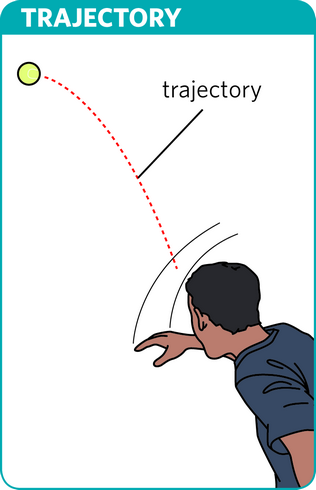From Longman Dictionary of Contemporary Englishldoce_248_btrajectorytra‧jec‧to‧ry /trəˈdʒektəri/ noun (plural trajectories) [countable] 1 technicalHP the curved path of an object that has been fired or thrown through the air2  formal the events that happen during a period of time, which often lead to a particular aim or result The decision was certain to affect the trajectory of French politics for some time to come.
formal the events that happen during a period of time, which often lead to a particular aim or result The decision was certain to affect the trajectory of French politics for some time to come.
 formal the events that happen during a period of time, which often lead to a particular aim or result The decision was certain to affect the trajectory of French politics for some time to come.
formal the events that happen during a period of time, which often lead to a particular aim or result The decision was certain to affect the trajectory of French politics for some time to come.Examples from the Corpus
trajectory• In 1873, however, one was found on a trajectory that brought it in to cross the orbit of Mars.• The spectator is dropped into the picture, with its racing and contradictory trajectories, like Cary Grant into a Hitchcock plot.• Scrubbing my mouth with my sleeve, I feel the Cathedral lurch beneath me, tilt towards a new trajectory.• There is obviously a vast number of such possible trajectories.• The postwar family stories suggest that the family has continued in the same trajectory.• Simulation has been used to predict population changes over a long period of time and for charting space-satellite trajectories.• Neither these, nor a variety of other types of household fit into the stereotypical trajectory through the life course.• Even as the trajectory of his thought kept rising in the early seventies, the clock was ticking on his pet project.Origin trajectory (1600-1700) Modern Latin trajectoria, from Latin trajectus, past participle of traicere “to cause to cross”, from trans- ( → TRANS-) + jacere “to throw” 
